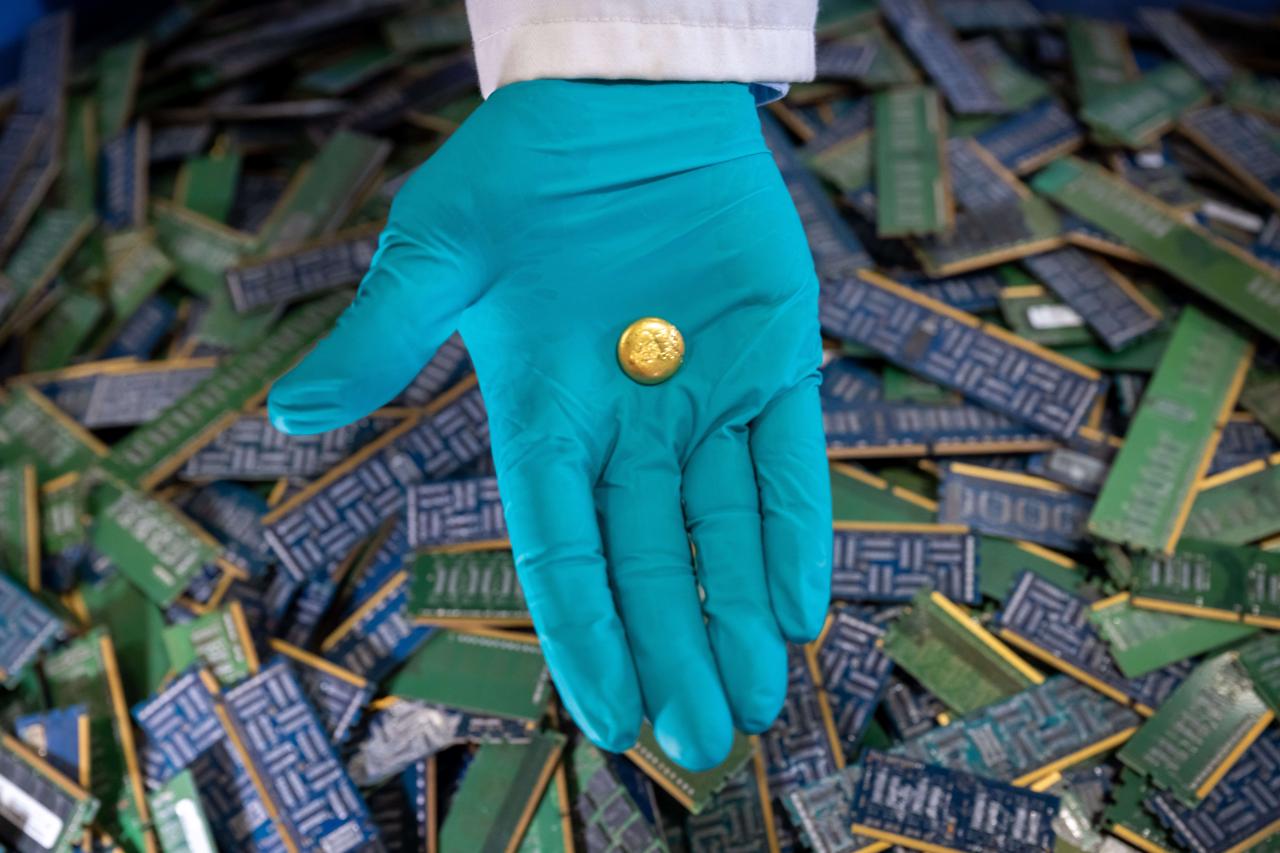The Royal Mint’s new Precious Metals Recovery facility uses the PlantPAx® DCS (distributed control system) from Rockwell Automation (NYSE: ROK) to manage and control the gold extraction process.
After two years of design and manufacture, the plant is now operational and provides a strong foundation for further expansion of this technology to support the world’s challenges with electronic waste, which is simply discarded electrical or electronic devices. The World Health Organization says it’s the fastest growing solid waste stream in the world, increasing three times faster than the world's population.
The PlantPAx DCS at The Royal Mint’s facility is used to monitor and control a chemical extraction process that can remove gold from e-waste such as printed circuit boards found in discarded mobile phones and laptops. The extraction technology, which was only at lab scale a few years ago, has been successfully scaled and is now operational at its site in Llantrisant, Wales.
E-waste is a major sustainability challenge across the globe, and technologies like this are essential towards carbon reduction and material re-use.
According to Statista, electronic waste is one of the world’s fastest-growing waste streams. With 62 million metric tons generated across the world in 2022, the volume of discarded electronic material has nearly doubled since 2010. With e-waste generation forecast to exceed 80 million metric tons by 2030, improved recycling and recovery infrastructure will be needed.
Tony Baker, director of manufacturing innovation at The Royal Mint, said: “The successful collaboration with Rockwell and the deployment of its DCS solution allowed us to demonstrate the technical viability of the technology to operate at scale. This puts us firmly on the road to our 4,000-ton per annum target, and discussions are already well underway with regards to usage of the recovered materials, as are the plans to expand the technology further.”
Learn more about Rockwell’s work to support customers and boost the circular economy.
